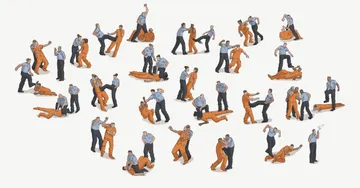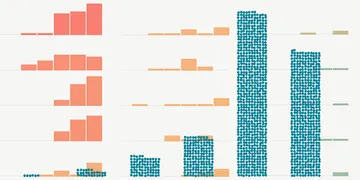George Zimmerman fatally shot 17-year-old Trayvon Martin on Feb. 26, 2012. The black teen was, now famously, wearing a hoodie and carrying a bag of Skittles and an Arizona iced tea.
To commemorate the anniversary of his death, we rounded up some of the best reporting and commentaries on the case. Did we miss any? Tweet it at @MarshallProj.
The Events Leading to the Shooting of Trayvon Martin, The New York Times, April 2012
If you need a refresher on the timeline of events, this interactive breaks down what happened the night of Feb. 26, 2012. It includes visuals of the site of the shooting and a look at what Zimmerman told police.
Florida’s Stand Your Ground Law, The Tampa Bay Times, June 2012
In an unprecedented look at nearly 200 “stand your ground” cases in Florida — the same defense that Zimmerman invoked at trial — the Tampa Bay Times found that nearly 70 percent of people who used the law in their defense went free. An interactive lets you examine all the cases and outcomes they identified, including Trayvon Martin.
The Danger Outside: How Can We Protect Our Black Boys?, Essence, October 2012
Trayvon Martin’s parents, like so many other black mothers and fathers, had “the talk” with him about how to act in front of police. But how do you protect black boys from laws like Stand Your Ground? Essence explores the answer through a poignant interview with Trayvon’s mother.
Law and Justice and George Zimmerman, The Atlantic, July 2013
That George Zimmerman was ultimately acquitted of murdering Trayvon Martin was not much of a surprise, as Andrew Cohen, now of The Marshall Project, pointed out in this lesson on the realities of America’s judicial system. “Criminal trials are not searches for the truth, the whole truth, and nothing but the truth,” Cohen wrote. “They never have been.”
Zimmerman Family Values, GQ, September 2014
What does it feel like to be the brother or sister, or the mother or father, of George Zimmerman, one of the most despised people in the country? In GQ’s creative take on the Zimmerman story, we hear directly from his family about the threats they received, the blame they all shared, and how their love for him may or may not have diminished.
George Zimmerman, Not Guilty: Blood on the Leaves, New Yorker, July 2013
To many black Americans, George Zimmerman’s “not guilty” verdict was painfully familiar. In this beautifully written, agonizingly sorrowful ode to that sense of familiarity, Jelani Cobb explains why the black community, through what he calls “historical profiling,” knew all along that the case would likely culminate in disappointment.
How Trayvon Martin’s Death Launched A New Generation Of Black Activism, The Nation, August 2014
The Million Hoodies Movement. BYP100. Dream Defenders. Trayvon’s death, and the 45 days it took for George Zimmerman to be arrested, inspired the latest incarnation of black youths’ fight for civil rights. This piece from the Nation nicely illuminates how these groups are the extension of those that came before them.
Trayvon Martin’s Mom: ‘If They Refuse to Hear Us, We Will Make Them Feel Us’, TIME, August 2014
Trayvon Martin’s mother, who has been providing support to families who have lost children to gun violence since her son’s death, posted an open letter to Michael Brown’s mom after the black teen was fatally shot in Ferguson in 2014. “We will no longer be ignored,” she wrote. “We will bond, continue our fights for justice, and make them remember our children in an appropriate light.”
Fear of a Black President, The Atlantic, September 2012
The shooting of Trayvon Martin’s death was a “transpartisan” issue, as Ta-Nehisi Coates put it, before President Obama commented on the black teen’s death. But once America’s black president spoke about — “If I had a son, he’d look like Trayvon” — it became “racialized political fodder” that speaks volumes on how far America still has to go.

